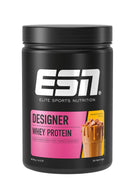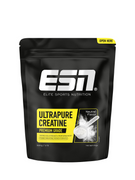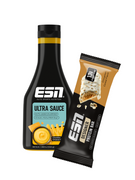Das Salzen von Lebensmitteln ist eine alte Erscheinung. Schon im Altertum salzten die Menschen ihre Nahrungsmittel, jedoch weniger aus geschmacklichen Gründen als vielmehr zum Haltbarmachen. Salz eignet sich nämlich hervorragend, um Lebensmittel zu konservieren. In Zeiten, in denen die nächste Mahlzeit nicht ein paar Klicks in der Bestell-App des Smartphones bereitstand, war das eine sehr bedeutende Errungenschaft.
Nun haben sich die Zeiten natürlich geändert, dennoch spielt Salz auch in unserer heutigen Ernährung eine bedeutende Rolle, ist nahezu in jedem Lebensmittel, insbesondere in verarbeiteten, zu finden. Besteht da nicht die Gefahr, zu viel Salz zu sich zu nehmen?
Das "Salz in der Suppe"
Salz eignet sich nämlich nicht nur sehr gut, um Lebensmittel vor dem Verderben zu bewahren, sondern sorgt neben seinem typischen Eigengeschmack dafür, dass organische Würzstoffe besser gelöst werden können, wodurch diese besser wahrnehmbar werden. Salz dient also als Geschmacksverstärker und lässt uns andere Gewürze wie Kräuter oder Pfeffer intensiver schmecken.
In der menschlichen Ernährung spielt dabei in erster Linie das Kochsalz, das zu 95 Prozent aus Natriumchlorid besteht, eine Rolle. Wie schon angesprochen, gibt es kaum ein verarbeitetes Lebensmittel, dem kein Kochsalz zugesetzt ist. Die Weltgesundheitsorganisation WHO geht davon aus, dass zwei Drittel der täglichen Salzzufuhr nicht durch gezieltes Salzen aufgenommen wird, sondern ohnehin in den verspeisten Lebensmitteln enthalten ist. Das heißt: Umso mehr verarbeitete Lebensmittel wir essen, umso mehr Salz nehmen wir zu uns, ohne den Salzstreuer auch nur einmal in die Hand zu nehmen.
Kritischer Salzkonsum?
Laut WHO sollten Menschen täglich maximal sechs Gramm Salz zu sich nehmen, nötig sei jedoch nur eine Zufuhr von zwei bis drei Gramm, um den andauernden Verlust durch Schweiß, Urin und Fäkalien auszugleichen. Bei intensiver körperlicher Anstrengung steigt dieser Bedarf, jedoch nur sehr langsam: Pro Stunde Ausdauertraining liegt der zusätzliche Salzbedarf bei bis zu eineinhalb Gramm.
Die durchschnittliche Salzzufuhr in westeuropäischen Ländern liegt mit derzeit rund zehn Gramm deutlich über diesen Empfehlungen. Die WHO warnt daher regelmäßig vor einem zu hohen Salzkonsum. Dieser wird nämlich in Verbindung mit Herz-Kreislaufkrankheiten gebracht. Forscher gehen davon aus, dass weltweit jährlich 2,3 Millionen Menschen durch Krankheiten sterben, die auf einen zu hohen Salzkonsum zurückzuführen sind. Das primäre Problem: Salz lässt den Blutdruck steigen. Dieser Effekt ist so stark, dass in vielen Fällen die Reduktion der täglichen Salzzufuhr die gleiche Wirkung haben kann, wie der Einsatz eines blutdrucksenkenden Medikaments.

Auf die Ernährung kommt es an!
Wer sich also durchschnittlich ernährt, hat in aller Regel keinen zusätzlichen Bedarf an Salz, eher im Gegenteil. Wer hingegen darauf achtet, verarbeitete Lebensmittel weitgehend zu meiden und Mahlzeiten selbst zuzubereiten, der hat deutlich mehr Spielraum. Zum Vergleich: Ein Bic Mac enthält rund ein Gramm Salz, 300 Gramm Hähnchenbrust nur 0,3 Gramm.
Wer sich also primär von unverarbeiteten Lebensmitteln ernährt und seine Mahlzeiten frisch zubereitet, der hat durchaus Spielraum, mit seiner Salzzufuhr zu experimentieren. Und das kann sich durchaus lohnen, denn Salz hat einige spannende Eigenschaften, die man sich auch für das Training zu Nutze machen kann.
Mehr Salz für mehr Pump!
Wer einmal nach einem Besuch in einem Fastfood-Restaurant ins Training gegangen ist, dürfte einen enormen Pump festgestellt haben. Kein Wunder, immerhin bindet Salz in der Muskulatur Wasser, wodurch die Versorgung mit Nährstoffen verbessert wird.
Wer auf die Kalorien dieser Mahlzeiten verzichten will, kann den gleichen Effekt durch die Einnahme von ein bis drei Gramm Salz kurz vor dem Training erreichen. Aber aufgepasst: Zum einen sollte man dabei immer die tägliche Gesamtzufuhr im Auge behalten, zum anderen lässt sich dieser Effekt nicht dauerhaft hervorrufen.
Der Körper lässt sich nicht lange austricksen!
Das liegt daran, dass unser Körper sich sehr schnell auf Veränderungen der Salzzufuhr anpassen kann. Das kann man auch sehr schön beim sogenannten „Entwässern“ von Leistungssportlern erkennen. Dabei ist es gängig, die Salzzufuhr vor einem Wettkampf zu manipulieren, entweder um Gewicht zu verlieren oder um die Form zu verbessern. In der Regel wird einige Tage die Salzzufuhr erhöht, dann radikal reduziert und gegebenenfalls kurz vor dem Wettkampf nochmal erhöht. Da das Salz im Körper sowohl in den Muskeln als auch unter der Haut Wasser bindet, kann die Auswirkung auf Gewicht und Optik immens sein, jedoch ist sie immer nur temporär. Besonders gut lässt sich das bei Wettkampfbodybuildern beobachten, deren Form auch immer vom Salzgehalt abhängt. Die Gratwanderung zwischen Topform und verwaschenen Details ist dabei aber komplex. Binnen Minuten können massive Veränderungen auftreten.
Deshalb bringt es auch nichts, alles Salz aus der Ernährung zu verbannen, um Wassereinlagerungen nachhaltig zu bekämpfen, sofern diese sich im normalen Bereich befindet.
Fazit: Kennst du deine Salzzufuhr?
Bevor man sich also Gedanken darüber macht, die Salzzufuhr zu manipulieren, sollte man erst einmal herausfinden, wie viel Salz man denn tatsächlich täglich zu sich nimmt. Dazu eignen sich die meisten gängigen Apps zum Tracken der Ernährung sehr gut.
Wer viel frisch kocht, wird vermutlich Spielräume finden, um Salz gezielt einzusetzen, wer hingegen vor allem auf verarbeitete Lebensmittel setzt, wird allein dadurch schon eher zu viel als zu wenig Salz zu sich nehmen.








